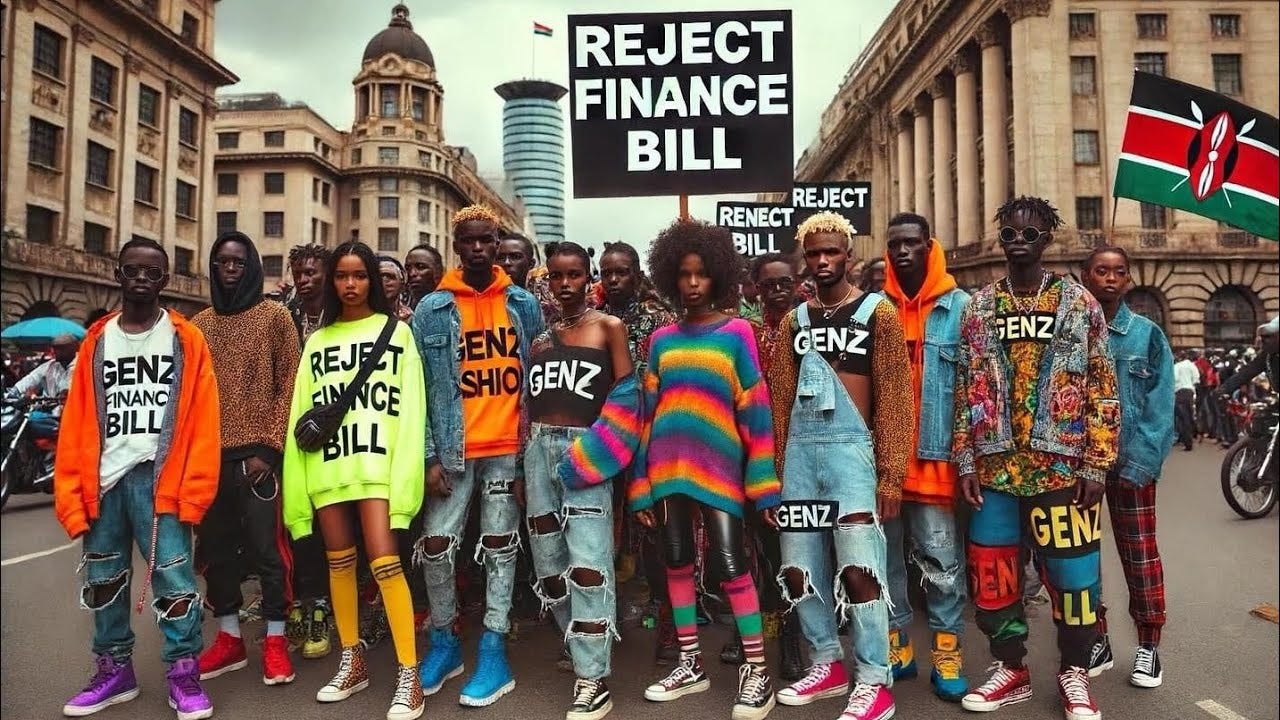The Kenyan Gen-Z Movement: A Comprehensive Analysis and Its Potential Spread to Tanzania
1. Introduction
The Kenyan Gen-Z movement represents a significant shift in the socio-political landscape of East Africa. Born between the mid-1990s and early 2010s, Generation Z in Kenya has emerged as a powerful force for change, leveraging technology, social media, and a globalized worldview to address longstanding issues in their country. This analysis will explore the origins, characteristics, and impact of the Kenyan Gen-Z movement, as well as assess its potential to spread to neighboring Tanzania.
2. Historical Context of Youth Movements in Kenya
To understand the current Gen-Z movement in Kenya, it's essential to consider the historical context of youth activism in the country:
2.1 Post-Independence Era (1960s-1970s)
In the years following Kenya's independence in 1963, youth movements were primarily focused on nation-building and supporting the new government. However, as disillusionment with the political establishment grew, some youth groups began to challenge the status quo.
2.2 The Moi Era (1978-2002)
During President Daniel arap Moi's authoritarian rule, youth activism was often suppressed. However, university students played a crucial role in pro-democracy movements, often facing harsh repression.
2.3 Post-2002 Democratic Opening
The election of Mwai Kibaki in 2002 marked a new era of political openness. Youth movements became more diverse, focusing on issues such as corruption, governance, and social justice.
3. Characteristics of the Kenyan Gen-Z Movement
The current Gen-Z movement in Kenya has several distinctive features that set it apart from previous youth movements:
3.1 Digital Natives
Unlike their predecessors, Kenyan Gen-Z activists are digital natives, adept at using social media and digital platforms for organizing, communication, and advocacy.
3.2 Intersectionality
The movement is characterized by an intersectional approach, addressing issues of gender, sexuality, class, and ethnicity simultaneously.
3.3 Global Perspective
Kenyan Gen-Z activists are well-connected to global movements and draw inspiration from international activism while maintaining a focus on local issues.
3.4 Entrepreneurial Spirit
Many Gen-Z activists combine social activism with entrepreneurship, creating innovative solutions to societal problems.
3.5 Cultural Expression
The movement often uses art, music, and fashion as forms of protest and expression, creating a distinctive youth culture.
4. Key Issues Addressed by the Kenyan Gen-Z Movement
The Gen-Z movement in Kenya focuses on a wide range of issues, including:
4.1 Political Representation
Demanding greater youth representation in political decision-making processes and governance structures.
4.2 Economic Opportunities
Advocating for job creation, entrepreneurship support, and addressing youth unemployment.
4.3 Education Reform
Pushing for an education system that better prepares young people for the modern job market and global competition.
4.4 Climate Change and Environmental Conservation
Taking a strong stance on environmental issues and demanding action on climate change.
4.5 Social Justice and Human Rights
Addressing issues such as police brutality, gender-based violence, and LGBTQ+ rights.
4.6 Anti-Corruption
Challenging systemic corruption and demanding transparency in government and business.
5. Tactics and Strategies of the Kenyan Gen-Z Movement
The movement employs a variety of tactics to achieve its goals:
5.1 Social Media Campaigns
Utilizing platforms like Twitter, Instagram, and TikTok to raise awareness and mobilize support.
5.2 Digital Activism
Employing online petitions, hashtag campaigns, and viral challenges to draw attention to issues.
5.3 Street Protests
Organizing physical demonstrations, often in coordination with online activism.
5.4 Citizen Journalism
Using smartphones and social media to document and report on events in real-time.
5.5 Collaborative Platforms
Creating online and offline spaces for discussion, idea-sharing, and collective action.
5.6 Creative Expression
Using art, music, poetry, and fashion as forms of protest and consciousness-raising.
6. Impact of the Kenyan Gen-Z Movement
The movement has had significant impacts on Kenyan society and politics:
6.1 Political Awareness
Increasing political engagement among young people and raising awareness of key issues.
6.2 Policy Changes
Successfully lobbying for policy changes in areas such as environmental protection and digital rights.
6.3 Cultural Shift
Challenging traditional norms and promoting more progressive values.
6.4 Economic Innovation
Spurring the growth of youth-led businesses and social enterprises.
6.5 International Recognition
Gaining attention and support from global organizations and movements.
7. Challenges Faced by the Kenyan Gen-Z Movement
Despite its successes, the movement faces several challenges:
7.1 Political Resistance
Encountering pushback from established political elites resistant to change.
7.2 Economic Constraints
Limited financial resources can hinder the movement's ability to sustain long-term campaigns.
7.3 Digital Divide
Not all young Kenyans have equal access to digital technologies, potentially limiting participation.
7.4 Generational Divide
Bridging the gap between Gen-Z activists and older generations can be challenging.
7.5 Maintaining Momentum
Sustaining enthusiasm and engagement over time, especially in the face of slow progress.
8. Potential for Spread to Tanzania
The potential for the Kenyan Gen-Z movement to spread to Tanzania is influenced by several factors:



